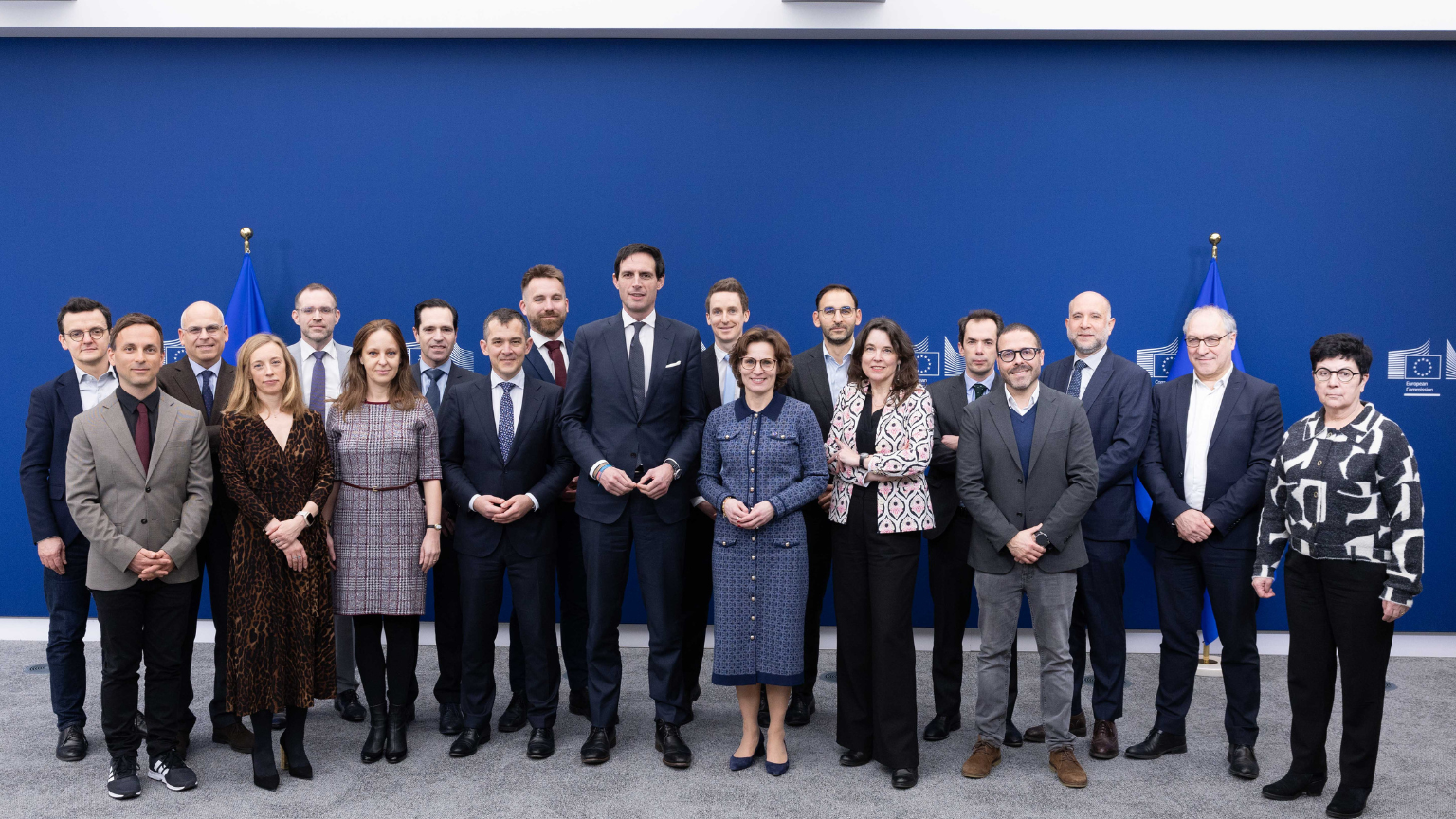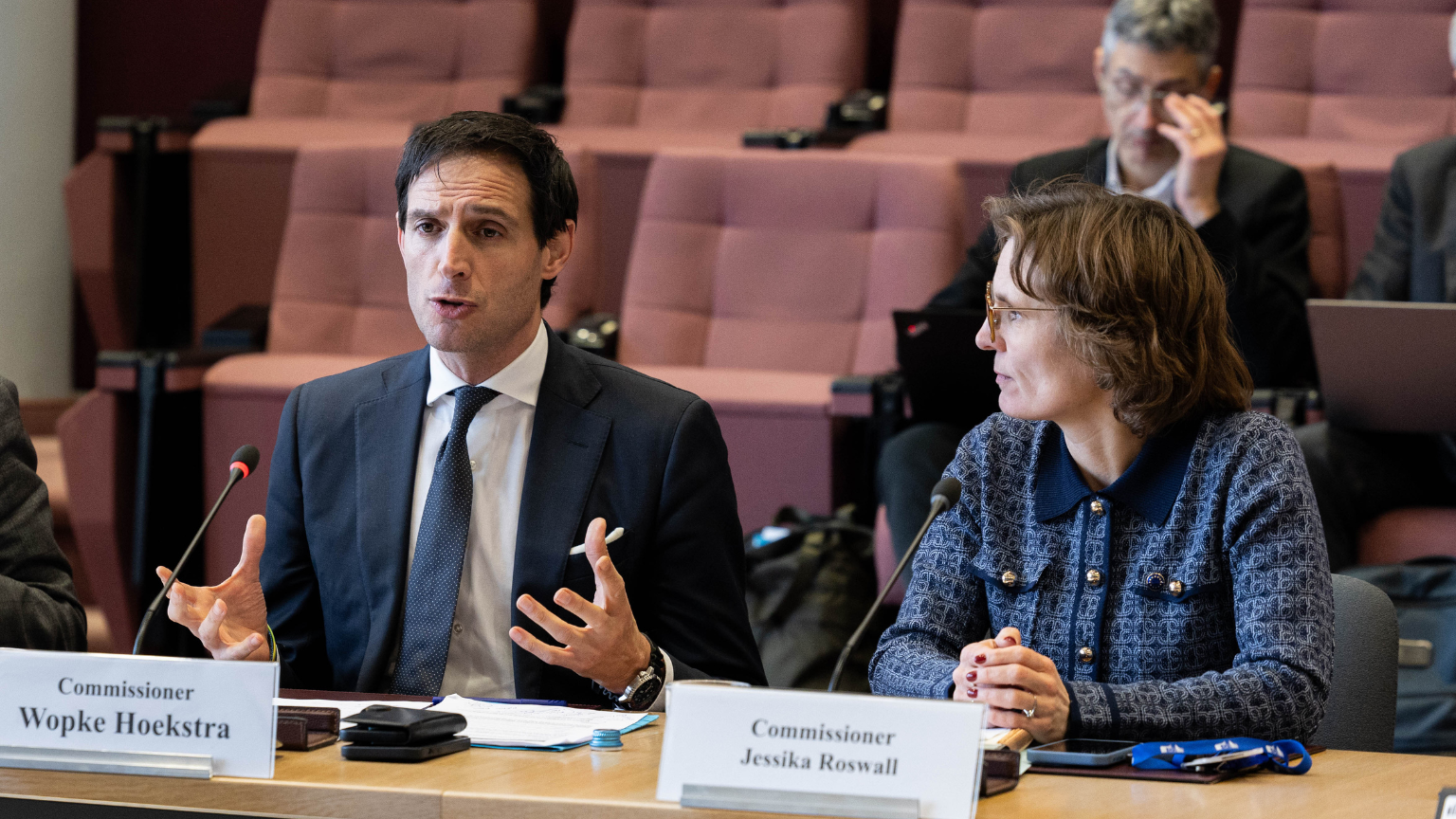IRU joined the European Commission and industry leaders at the Strategic Dialogue on the Future of the European Automotive Industry today, reinforcing the need for a realistic approach to the clean mobility transition.
In high-level discussions on the future of the EU’s automotive industry, led by European Commissioner for Climate, Net Zero and Clean Growth Wopke Hoekstra, IRU warned today that imposing zero-emission vehicle (ZEV) purchasing mandates on private operators risk disrupting supply chains, increasing costs, and slowing fleet renewal.
Instead, IRU is urging policymakers to focus on voluntary adoption, backed by smart incentives, infrastructure investment, and a diversified energy mix, with EU Member States setting an example through revisions to the Clean Vehicles Directive and Public Procurement Directive.
Adequate financial incentives tailored to diverse transport operations, substantial investment in charging and refuelling infrastructure, and urgent upgrades to the EU’s electricity grid are essential to ensuring a practical and effective transition.
IRU EU Director Raluca Marian said, “It is clear that Member States can, and should, lead by example, ensuring that public procurement policies align with CO₂ reduction targets while also supporting market-driven adoption of clean technologies.
“Public investment can play a pivotal role in de-risking private sector commitments, driving economies of scale, lowering battery-electric vehicle costs, and creating the market confidence needed to boost adoption.”
“However, a clear distinction must be maintained between public procurement and private investments. Imposing purchasing targets on private operators without the necessary enabling conditions in place would be disproportionate and unjustified in a functioning market,” she added.
IRU is urging policymakers to prioritise infrastructure development, smart incentives, and a diversified energy mix. The current lack of charging and refuelling infrastructure presents a major obstacle to ZEV adoption. Without a significant increase in high-power charging stations and alternative fuel refuelling points, fleet operators cannot transition at the required pace.
Financial viability also remains a key concern. Zero-emission trucks cost two to three times more than conventional vehicles, making it difficult for small and medium-sized enterprises to upgrade their fleets without targeted support. IRU is calling for harmonised incentives across the EU, including tax benefits, investment aid, and infrastructure access to ensure a level playing field.
A diverse mix of low-carbon and carbon-neutral fuels must also remain part of the EU’s long-term strategy. While battery-electric vehicles may be suitable for urban and regional transport, heavy-duty operations require additional solutions such as biofuels, biomethane, e-fuels, and hydrogen. A balanced, technology-neutral approach will ensure that all transport modes can contribute effectively to the EU’s decarbonisation goals.
Through the IRU Green Compact, the industry is already leading the way with a concrete roadmap to achieve carbon neutrality, provided the right enabling conditions are in place.
IRU remains committed to working with policymakers, industry leaders, and transport operators to develop a realistic and investment-friendly pathway towards net-zero emissions. Ensuring regulatory certainty, financial support, and infrastructure readiness will be key to delivering a sustainable and competitive European road transport sector.


